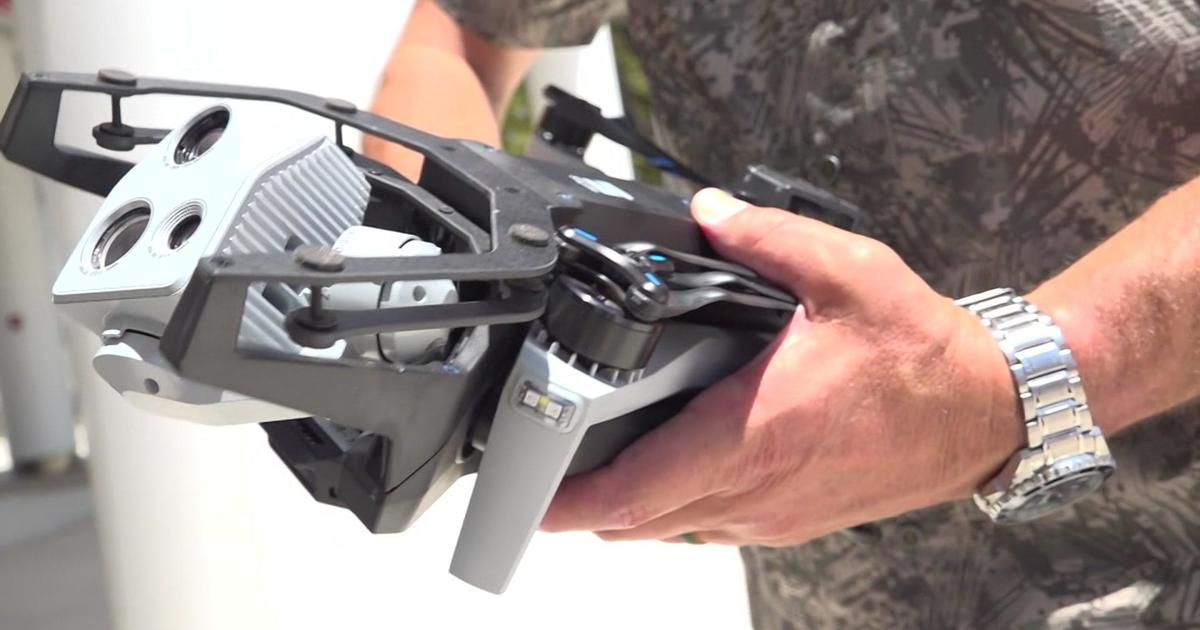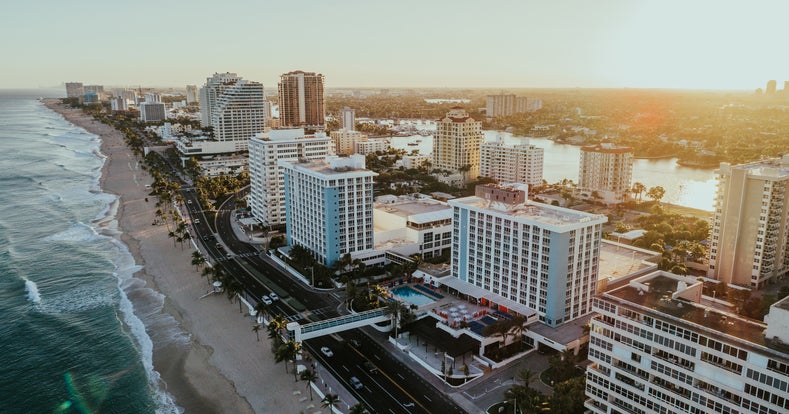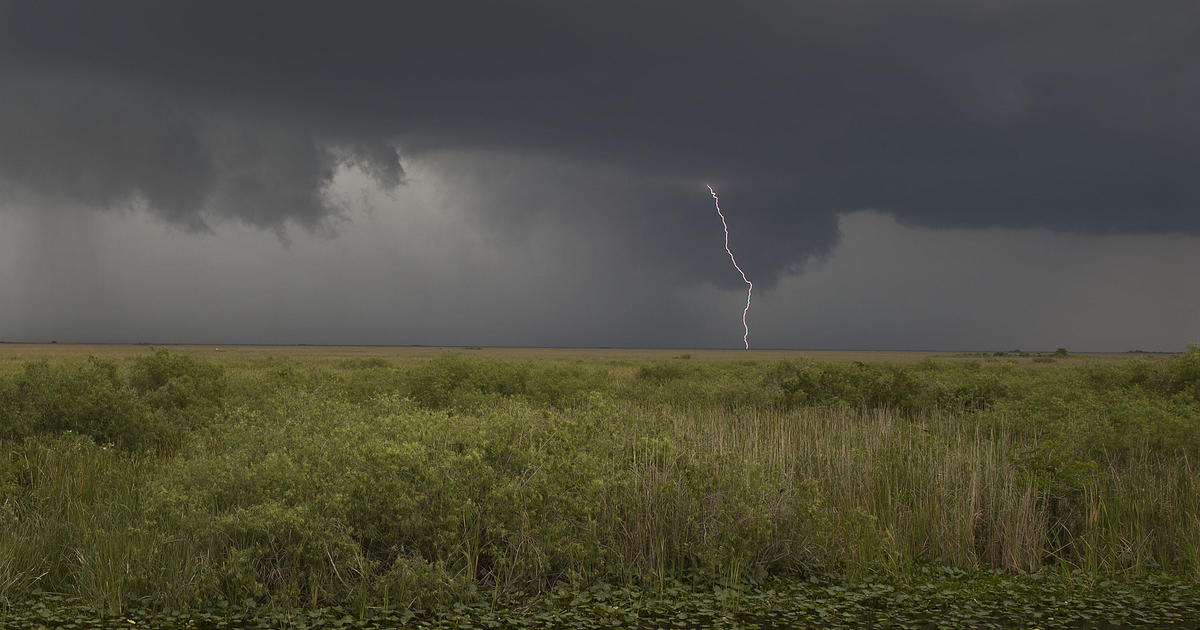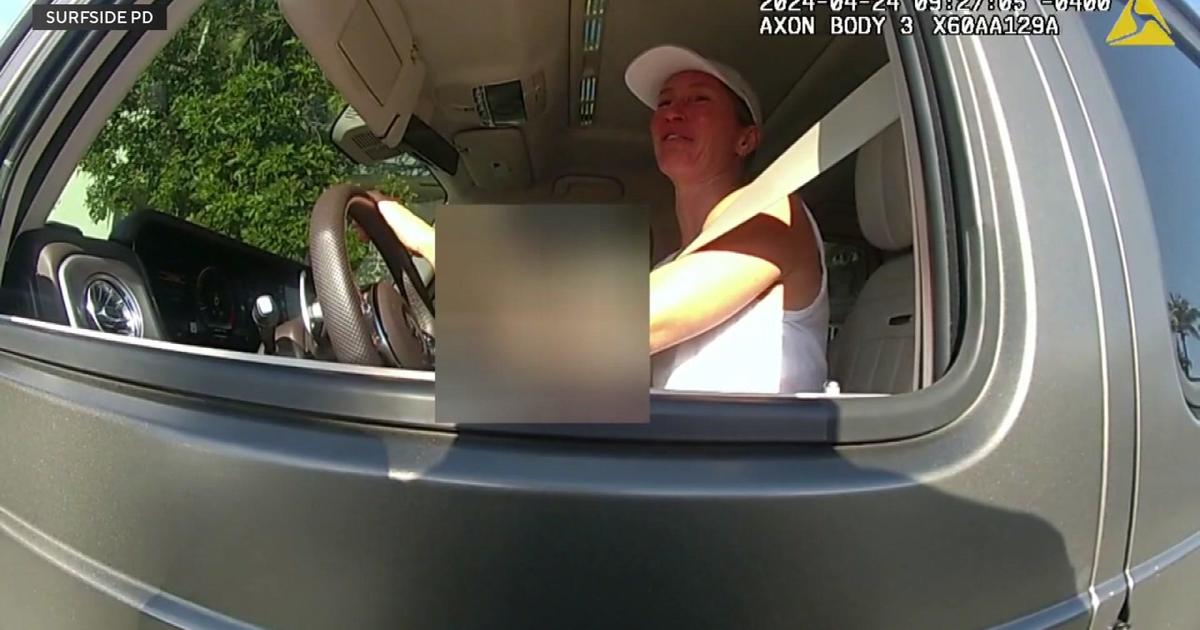Former FEMA Director Hunkering Down In South Florida To Test State's Housing Codes
Follow CBSMIAMI.COM: Facebook | Twitter
MIAMI (CBSMiami) – The former director of FEMA is hunkering down in South Florida because he wants to test the state's housing codes, which he says are top-notch.
CBS4's Jim DeFede has been in touch with David Paulison.
Paulison, who was the former FEMA director from 2005 to 2009, was here for Hurricane Andrew and really helped out with the recovery following Hurricane Katrina's devastation.
DEFEDE: I know you are here in Broward. You will ride out this storm in South Florida. Give us your personal assessment. What are you thinking right now?
PAULISON: Well, this will be a bad storm – that is totally obvious, everyone knows that. We decided to stay put. We have a new roof on the house, a generator, food, water, all my kids are gathered here and the grandkids. I think we will be in good shape. It's not gonna be easy. This will not be one of those storms you get through and the next day you clean a few branches up and go on. If you look at the pictures, I am sure you have already shown, pictures of what happened in Andrew, roots were gone, there was not a leaf on a tree were down. Anybody went to Key Biscayne it was like charcoal, not a green thing anywhere. If we get the brunt of the storm, it will not be a pretty sight at all. People had better be ready or be in a shelter.
RUDABEH SHAHBAZI: Interesting that you chose to hunker down and wait out the storm with your family. What was the decision-making factor for you?
PAULISON: I will tell you why we made the decision. It was the… what we did after Andrew was looked at very carefully at the building codes. Why did those buildings fail? Why did brand-new buildings, like County Walk and other new areas, why did they fail? We changed our building codes. We had to fight tooth and nail. It was not an easy fight, it was a very difficult fight to change how we tie our roofs down, what material we use, how we fasten our windows in, how you fasten doors in. The doors now swing out instead of in like we saw they failed in Andrew. Because my home meets all those things, I felt like I needed to ride it out. I wanted to see if the code would work. We only have 16 states across the country with statewide building codes. Florida is one of the best.
RICK FOLBAUM: Well, Director David Paulison, the fact that you have your family with you, including your grandchildren, signals to me that you feel pretty confident that you guys will come out of this on the other side in a very safe way. A lot of people in South Florida are doing the same thing you are doing with your family, they will hunker down at home. Can you give us a sense as the storm begins to pick up, the winds begin to pick up, exactly what you will be doing inside your house? Where you will position everybody and prepare yourself for the worst of this?
PAULISON: Once we get to the storm part coming in, nobody goes outside. We are done with that. You're not going to peek, you're not gonna do anything else. The shutters are up, we tied down tight. Everything is picked up and in the house – that's finished. We will gather in the safest place in the house. We have interior rooms with no exterior walls. All the outside doors are shut tight. All the windows are covered. In all of our interior doors, we will shut all of those also, in case part of the roof comes off, we can isolate the damage just by closing your interior doors.
DEFEDE: Chief, it seems like this storm has a little bit of everything for everyone. It seems like you've got a situation where you have the high winds like you have with Hurricane Andrew. You're gonna have the storm surge, which you have not seen here a long time. And depending on which side of the storm we're on, we could see heavy rainfall. Which of those elements worries you the most? Is it the wind? Is it the rain? Is it the surge?
PAULISON: Well, Jim, it depends on where you are. For me, I am in western Broward County. I am worried about the winds. We will not have the storm surge, the rain is OK. I don't have to worry about that, we will not flood. I worry about the high winds. Will the roof withstand these winds based on the codes we put in place?
DEFEDE: Thinking more generally, what is the worst part of a hurricane? Is it the wind? Is it the water? Is it the surge? Is it the rain? Take a step back for second. What is the worst part of this storm that worries you the most?
PAULISON: Again, for me, it is the wind. If you are close to the coast, it will be the title surge. If you are in an area that floods, it will be the rain. I am in an area that does not flood. I am not worried about that. I am worried about the high winds. What is it gonna do to the roof? I have a screen enclosure for my pool that went down during Wilma. That wasn't a bug hurricane. I want to see how these things perform. I am worried about the high winds more than anything.
SHAHBAZI: One quick question before we let you go. I am wondering if there is anything you feel that the news media, that we have not emphasized enough in terms of people staying safe in their homes, the ones who are hunkering down. Is there anything else that people are maybe not thinking about that you would emphasize to keep them safe?
PAULISON: I think you have done a great job. You have been telling people to do the right things. The main thing is to keep your family safe. Don't do stupid things. You know, if the trees are down, leave them down for now. Don't put the generator in the house. This is a foreign object to people. Some people have never used them before. We have fatalities with carbon monoxide. We have fatalities with people setting their houses on fire with candles. Take a deep breath. Let the storm do what it will do. After it is all over, wait until the winds died down, then assess your damage. Take care of yourself and your family, that's the most important thing.



